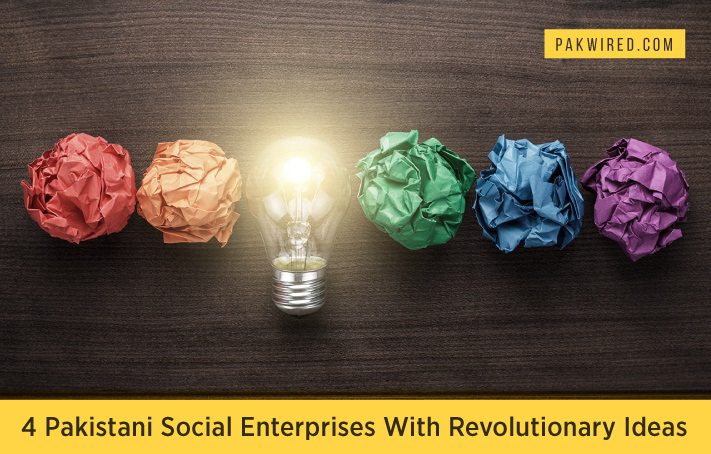With dozens of incubators, coworking spaces, and accelerator programs cropping up all around Pakistan, it’s easy to lose track of the multitude of new startups flourishing in different industries. Such revolutionary ideas shouldn’t come as a surprise – a 2014 report by the Guardian covered the array of Pakistani social enterprises (SEs) tackling some of the country’s toughest concerns like water, construction, and sustainable energy challenges. From providing clean water to impoverished areas, to harnessing sustainable energy sources, Pakistani entrepreneurs are clearly not just in it for the money.
A 2015 study by odi.org attempted to define the new surge of social enterprise in Pakistan. “The adoption of the term ‘social enterprise’ in the branding and conceptualization of socially motivated businesses is a recent phenomenon — inspired by a rising interest in entrepreneurship, and a growing desire to strengthen the private sector and reduce reliance on foreign aid.”
Here, we’ll highlight a few Pakistani social enterprises that are part of this surge. The common factor in each of these SEs is that the ideas grounding them have the potential to fundamentally change the way Pakistanis live.
1. Hashoo Foundation
Based in Islamabad, the Hashoo Foundation is composed of three main branches: economic development, human capital development, and social protection. Their projects range from ongoing skill-building programs like Hospitality Management Training, to timely operations like the Sahara Fund, which provided relief for victims of the 2008 Islamabad Marriott Hotel bombing. Aside from these projects, the Foundation is constantly working to expand with centers in Austin, Texas and London, UK. Hashoo supports Pakistani economic development through initiatives like honey bee farming for rural female workers and educational workshops for dairy farmers.
2. YES (Youth Engagement Services)
A social enterprise in its own right, YES funds small Pakistani social enterprises through powerful community engagement strategies. With a country consisting of mostly individuals under 30, YES targets young people to eliminate isolation and discourage crime and violence. YES operates several projects, including a Service Learning Project that addresses the many issues currently facing Pakistan. This program educates youth on how to utilize their skills to help solve some of these issues, such as poverty and environmental degradation. Yes also runs a program called The Emerging Entrepreneur Competition, a four week program that gives young people a chance to experience what its like to run a business.
3. Desi Tour Project
Desi Tour’s slogan is “rediscover Pakistan.” At first glace, Desi may look like your average service for tourists. However, the project runs much deeper, aiming to transform the international perception of Pakistan and restore a sense of national pride. They offer a variety of tours including personal customized tours, historical tours of Old Lahore, and modern cultural tours including local food. Desi tours also serve as a unique way to encourage communication between local Pakistanis and foreign visitors.
4. Pharmagen Water
Pharmagen Water’s business model aims to provide clean drinking water and promote social welfare across Pakistan. Citing water-borne illness as a major factor in illness development in both urban and rural areas, the company has established several water shops. There are currently 16 Pharmagen Healthcare Limited shops in Lahore, offering both walk-in services and home delivery. Pharmagen uses the process of reverse osmosis to clean drinking water for local residents. The founders aim to continue opening shops in order to reach their goal of serving one million litres of purified water per day.
What’s Next for Pakistani Social Enterprises?
While social enterprise has come a long way in the last 15 years, stakeholders are realizing that several gaps are still in need of filling. With continued help from Pakistan’s ever-growing support programs for startups, more corporate engagement is needed to bolster success. Along with this, social enterprises must learn to tailor financial decision-making to adapt to Pakistan’s current economic climate.
Featured image credit: Shutterstock


